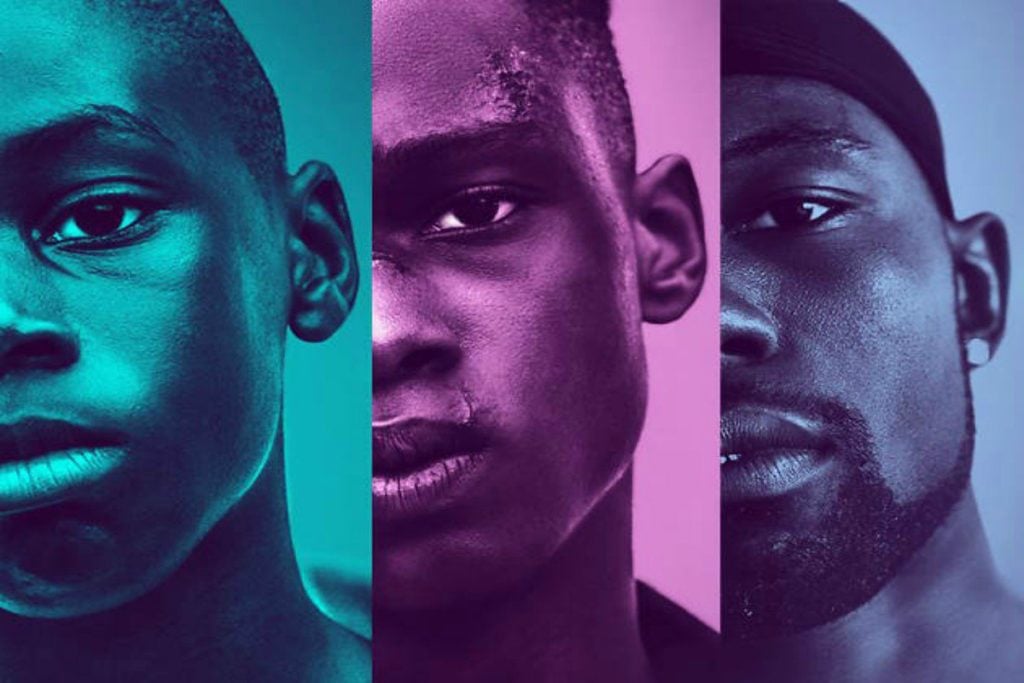Moonlight

Moonlight
The 2016, thriller/romance film, Moonlight, follows the story of Chiron, an African-American boy who struggles with his identity and suppressed thoughts of homosexuality. The film is split into three acts, all displaying different points in Chiron’s life, beginning with childhood, adolescence, and ending in adulthood. When Chiron is a child, he is living with his mother who is addicted to crack, in a neighborhood in Miami that is filled with crime. He is a small and shy boy with the nickname, “Little”, which leads to a lot of bullying and harassment from his peers. When Chriron becomes a teenager, he continues to be bullied and eventually lashes out and attacks one of his bullies, landing him in Juvy. Chiron also experiences some sexual experimentation with his friend Kevin during his adolescence. When we see Chiron as an adult, he is much larger and he is living in Georgia as a drug dealer. Kevins tells him to come pay a visit after years of not talking, which eventually leads to Kevin embracing and comforting him.
The film, Moonlight, is a visual masterpiece with beautiful cinematography that grips the audience and makes us sympathize with the characters and the story. The use of close-ups and the play of light creates a feeling of vulnerability which allows the audience to feel what the characters are feeling. The color palette of the film, blue and black, reflects the emotions and feelings of living in that neighborhood in Miami. The director also used the moonlight to reflect on the characters, especially in the beach scenes.

This film is also a significant milestone for representation in the media. Moonlight beautifully represents the African-American experience by exploring topics such as masculinity and sexuality, topics that have been rarely discussed in the film industry. Overall, I really enjoyed this film and I will definitely recommend it to someone looking for an inspiring film that brilliantly tackles difficult or uncomfortable topics.
"This film is also a significant milestone for representation in the media." YES!
ReplyDelete